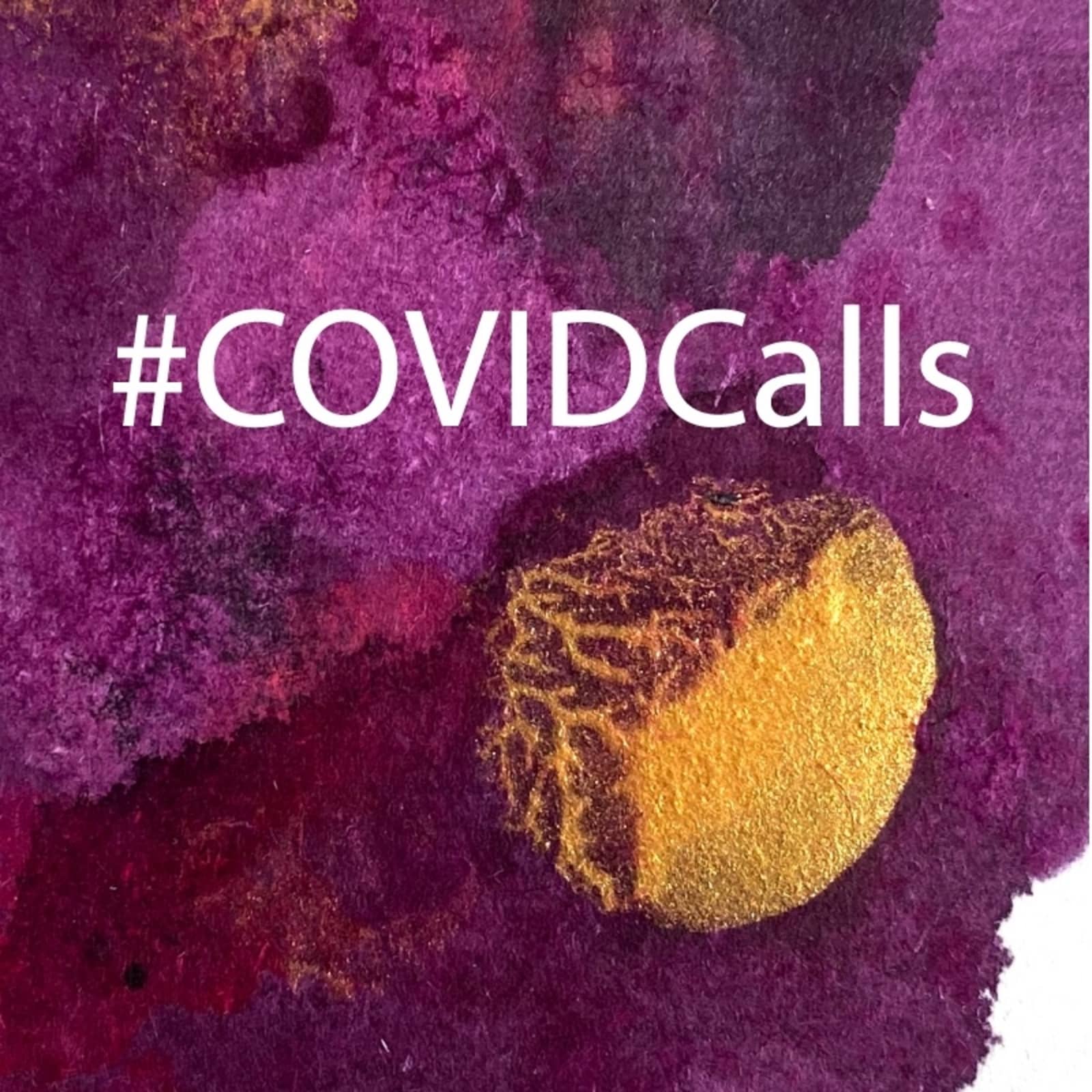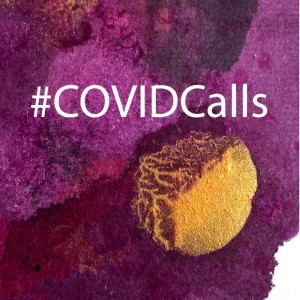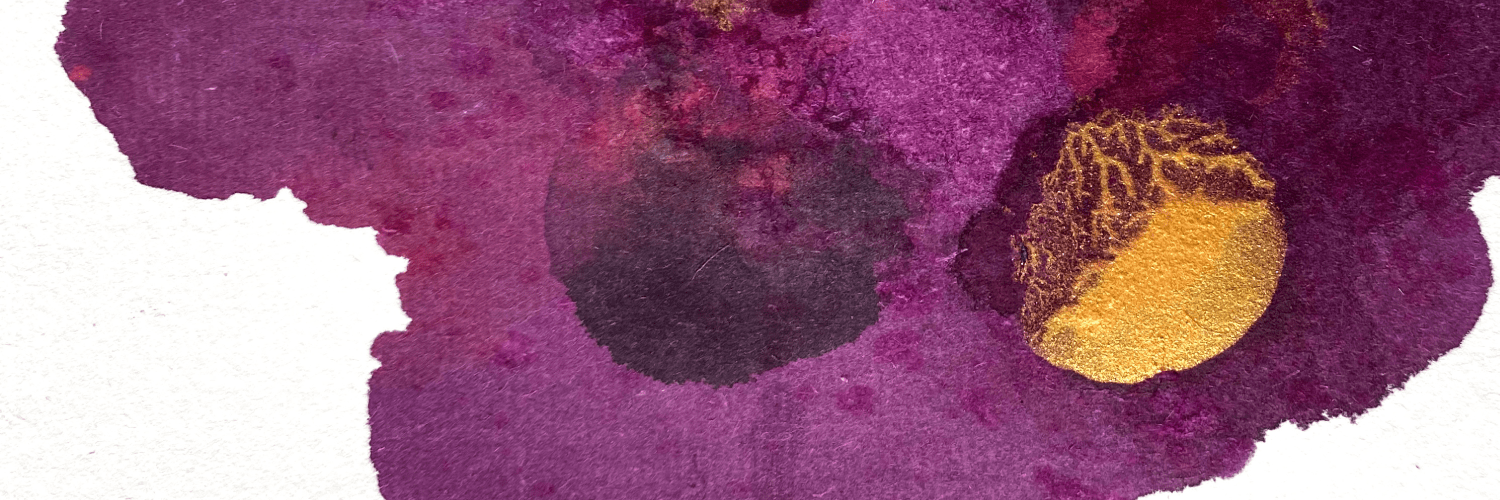
56K
Downloads
504
Episodes
A daily discussion of the COVID-19 pandemic with a diverse collection of disaster experts - hosted by Dr. Scott Gabriel Knowles, a historian of disasters at KAIST in Daejeon, South Korea.
A daily discussion of the COVID-19 pandemic with a diverse collection of disaster experts - hosted by Dr. Scott Gabriel Knowles, a historian of disasters at KAIST in Daejeon, South Korea.
Episodes

Wednesday Feb 03, 2021
EP #214 - 02.03.2021 - Research Libraries& COVID-19 with Lisa Browar & Patrick Spero
Wednesday Feb 03, 2021
Wednesday Feb 03, 2021
Today is the first of three COVIDCalls special episodes in partnership with two great research libraries: the American Philosophical Society and the Linda Hall Library. These episodes will explore challenges and changes for research libraries and the scholars that use them in the time of COVID. We will be especially interested to think about the ways that library and archival materials in the history of science, technology, and medicine can teach us about COVID-19.
Adrianna Link is the Head of Scholarly Programs at the American Philosophical Society. She received her Ph.D. from the Department of History of Science and Technology at The Johns Hopkins University in 2016, where she specialized in the history of 20th c. American anthropology. She is currently preparing a book manuscript on the history of "urgent anthropology" at the Smithsonian Institution
Lisa Browar was appointed President of the Linda Hall Library of Science, Engineering and Technology in July 2008. Prior to accepting this position, she was University Librarian at The New School in New York City from 2002 until 2008. Lisa previously served as the Brooke Russell Astor Chief Librarian for Rare Books and Manuscripts at The New York Public Library.

Tuesday Feb 02, 2021
EP #213 - 02.02.2021 - COVID-19 Vaccines, Law, and Society
Tuesday Feb 02, 2021
Tuesday Feb 02, 2021
Today is a COVIDCalls discussion of COVID-19 vaccines, law, nationalism, and politics with Ana Santos Rutschman.
Ana Santos Rutschman has been assistant professor at Saint Louis University School of Law since 2018. She focuses on topics related to health law, innovation in the life sciences, intellectual property, and law and technology. At SLU, she teaches FDA Law and Policy, the seminar Emerging Health Technologies: Vaccine Law and Policy, Patent Law and Property.
Her legal scholarship has appeared or is forthcoming in UCLA Law Review, Emory Law Journal, Yale Law Journal Forum, Michigan Law Review Online among other venues. Her commentary pieces have been published by the Saint Louis Post-Dispatch, Health Affairs Blog, the Huffington Post and The Conversation. Her forthcoming book, Vaccines as Technology: Innovation, Barriers and the Public Interest with Cambridge University Press is scheduled to be published in 2022.
She has worked as a consultant to the World Health Organization in 2015-2016 during the Ebola and Zika outbreaks.

Saturday Jan 30, 2021
Saturday Jan 30, 2021
Today is a COVIDCalls Congressional discussion w/Representative Brendan Boyle of the PA-2. Following my discussion with Brendan Boyle I will talk with pandemic media expert Dr. Katie Foss.
Dr. Katie Foss is a Media Studies professor in the School of Journalism & Strategic Media at Middle Tennessee University, where she teaches courses in media literacy, health communication, and gender studies.
She is the author of Constructing the Outbreak: Epidemics in Media and Collective Memory, Breastfeeding and Media: Exploring Conflicting Discourses That Threaten Public Health, and Television and Health Responsibility in an Age of Individualism. Foss edited The Graduate Student Guidebook: From Orientation to Tenure Track, Beyond Princess Culture: Gender and Children’s Marketing, and Demystifying the Big House: Exploring Prison Experience and Media Representations.

Thursday Jan 28, 2021
EP #211 - 01.28.2021 - COVID-19 in the U.K. Public Health Update with Esther Chernak
Thursday Jan 28, 2021
Thursday Jan 28, 2021
Today is a COVIDCalls Public Health Discussion with COVIDCalls alumni guests James Dodd and Esther Chernak.
Dr. Esther Chernak. Esther is a professor in the Department of Environmental Health, Drexel University School of Public Health, and has a position in the Drexel University College of Medicine. She is the director of the Center for Public Health Readiness and Communication at Drexel. Prior to joining the Drexel faculty in 2010, Dr. Chernak worked at the Philadelphia Department of Public Health for over 25 years.
James Dodd is a Consultant Senior Lecturer in Respiratory Medicine at the Academic Respiratory Unit, University of Bristol, UK. His research focuses on the multi-system impact of lung disease and he is currently undertaking neuroimaging studies of brain pathology and cognitive function in patients with COPD. His clinical work is at Southmead Hospital, Bristol, where he has responsibility for the care of patients with complex COPD and asthma.

Wednesday Jan 27, 2021
EP #210 - 01.27.2021 - International Holocaust Remembrance Day
Wednesday Jan 27, 2021
Wednesday Jan 27, 2021
On today's COVIDCall, a story and some news items on this International Holocaust Remembrance Day.

Tuesday Jan 26, 2021
EP #209 - 01.26.2021 - Historian Roundtable on COVID-19
Tuesday Jan 26, 2021
Tuesday Jan 26, 2021
Today is a COVIDCalls historians’ roundtable with Sandra Eder, Cindy Ermus, and Tiago Saraiva.
Sandra Eder is an assistant professor in the history department at the University of California, Berkeley, where she teaches U.S. gender history and the history of medicine. Her research focuses on gender, sexuality, and race in medicine and science, clinical practices and patient records, and the science of happiness. She has a book forthcoming on the emergence of the sex/gender binary in mid-twentieth-century American medicine. She is co-editor (with Elena Conis and Aimee Medeiros) of “Pink and Blue: Gender, Culture, and the Health of Children” which deploys gender—often in concert with class and race—as the central critical lens for understanding the function of pediatrics as a cultural and social project in modern U.S. history (Rutgers University Press in May 2021).
Dr. Cindy Ermus (@CindyErmus) is Assistant Professor of History at the University of Texas at San Antonio. She teaches courses on the history of disease and disasters, early modern Europe, and the Age of Revolutions. She has published on catastrophe and crisis management in eighteenth-century Europe and the Atlantic, and she is the editor of a volume titled Environmental Disaster in the Gulf South: Two Centuries of Catastrophe, Risk and Resilience (LSU Press 2018). Her current book project is a transnational study of the Plague of Provence of 1720 (“Great Plague of Marseille”), one of the last outbreaks of plague in Western Europe. She is also co-founder, executive editor, and contributor for the digital academic publication, Age of Revolutions (www.ageofrevolutions.com; on Twitter @AgeofRevs).
Tiago Saraiva is Associate Professor of History at Drexel University, coeditor with Amy Slaton of the journal History and Technology, and author of Fascist Pigs: Technoscientific Organisms and the History of Fascism (2016). He has been a Research fellow at the Institute of Social Sciences of the University of Lisbon as well as visiting professor at UCLA and UC Berkeley. He is currently studying the significance of cloning Californian oranges for the history of racial capitalism in the United States, South Africa, Algeria, Palestine, and Brazil, and completing Moving Crops and the Scales of History, a collective manuscript with multiple co-authors.

Monday Jan 25, 2021
EP #208 - 01.25.2021 - The Pandemic and the History of Medicine
Monday Jan 25, 2021
Monday Jan 25, 2021
Today is a COVIDCalls history of public health and medicine session with Deborah Levine and Jacob Steere-Williams.
Deborah Levine is a scholar in the areas of the history of medicine, health, patient experience, health insurance, and disease at Providence College. She regularly presents at national and international conferences. In addition, her work often appears in scholarly journals, and her expertise has been sought by media outlets that include The Washington Post, The New York Times, and CBS Evening News.
Jacob Steere-Williams is a historian of epidemic disease and public health, and an Associate Professor at the College of Charleston. He is the author of the recently published book, The Filth Disease: Typhoid Fever and the Practices of Epidemiology in Victorian England, with the University of Rochester Press. Jacob has been active during the COVID-19 pandemic in engaging in public scholarship, writing op-eds in local and national media outlets, giving public lectures, and organizing a oral history project in Charleston.

Thursday Jan 21, 2021
EP #207 - 01.21.2021 - Trump, Biden, and the Path Ahead with Virginia Heffernan
Thursday Jan 21, 2021
Thursday Jan 21, 2021
Today I discuss Trump, Biden, and the Path Ahead w/Virginia Heffernan.
Virginia Heffernan is an accomplished journalist and cultural critic—she is a regular contributor to The New York Times, as well as The Wall Street Journal, Mother Jones, and Politico. She writes a regular column for Wired Magazine and the LA Times—and she is co-host of the Trumpcast on Slate. She is also the author of Magic and Loss: The Internet as Art (2016) with Simon and Schuster.

Wednesday Jan 20, 2021
EP #206 - 01.20.2021 -Inauguration Day Memorial Episode
Wednesday Jan 20, 2021
Wednesday Jan 20, 2021
Today is a special Inauguration Day Memorial Episode.
TODAY AT NOON Joseph R. Biden became the 46th President of the United States. COVID-19 is certainly a global pandemic, with a story to be told of every nation, and across/beyond nations--but in the United States the suffering and loss of life is bound up with the failures of the Trump Administration, failures of Donald Trump himself, personally—failure to plan for disaster, react seriously, tell the truth, not spread lies and disinformation, not divide the public along lines of ideology/age/race/region—the manifest failure of now former President Trump to take seriously his duties, or to even show common decency or modesty when presented his deadly failings.
And so with the transition of power to President Biden, I (and many others) are trying to lay aside our anger. I’m marking the day with some hope, a measured hope given the suffering and dying of so many, but hope nonetheless that the United States federal government can change course, help bend the curve, deliver and administer vaccine, and facilitate a recovery and memorial process that we desperately need.
I’d like to quote Biden’s inaugural address: “Few people in our nation's history have been more challenged or found a time more challenging or difficult than the time we're in now. Once-in-a-century virus that silently stalks the country. It's taken as many lives in one year as America lost in all of World War II. Millions of jobs have been lost. Hundreds of thousands of businesses closed. A cry for racial justice, some four hundred years in the making moves us. The dream of justice for all will be deferred no longer. And my first act as president, I’d like to ask you to join me in a moment of silent prayer to remember all those who we lost this past year to the pandemic. Those four hundred thousand fellow Americans, moms, dads, husbands, wives, sons, daughters, friends, neighbors and coworkers. We will honor them by becoming the people and the nation we know we can and should be. So I ask you, let's say a silent prayer for those who've lost their lives, those left behind and for our country.”
In that mindset I’ve asked 5 guests to join COVIDCalls today for a memorial session. Each will come on in turn, read an obituary and discuss why they chose that life to honor. Thanks for joining us today.

Tuesday Jan 19, 2021
EP #205 - 01.19.2021 - Y2K and COVID-19
Tuesday Jan 19, 2021
Tuesday Jan 19, 2021
Today we discuss Y2K, COVID-19, and the CRISIS OF EXPERTISE with historian Zachary Loeb.
Zachary Loeb is a PhD candidate in the History and Sociology of Science at the University of Pennsylvania. He works at the intersection of the history of technology and the history of disasters. Zachary's research explores the belief that humanity's romance with techno-science will lead to the end of the world--he works on the history of computing, the history of critiques (and critics) of techno-science, as well as on prophecies of doom and those who are described (rightly or wrongly) as prophets of doom. He is writing a dissertation on the year 2000 computing crisis, better known as Y2K.
